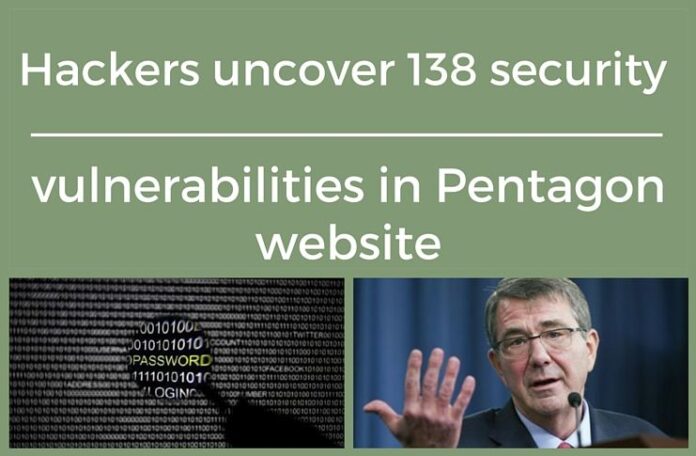
Pentagon Website to be uncovered by Hackers
Hackers invited by the Pentagon to breach its websites as part of a pilot cyber security program have succeeded in digging out at least 138 security vulnerabilities, U.S. Defense Secretary Ash Carter said Friday.
For more information on Cyber security read this article Cyber Security
[dropcap color=”#008040″ boxed=”yes” boxed_radius=”8px” class=”” id=””]T[/dropcap]he “Hack the Pentagon” program, the first U.S.-government-funded “bug bounty” initiative designed to test and find vulnerabilities in the department’s websites, attracted more than 1,400 hackers, including students.
“No federal agency had ever offered a bug bounty,” Carter told an event at the Pentagon. “Through this pilot, we found a cost-effective way to supplement and support what our dedicated people do every day.”
The entire cost of the program, which ran from April 18 to May 12, was 150,000 U.S. dollars. In contrast, hiring a private firm to conduct a similar security test could have cost more than 1 million dollars.
The challenge was conducted against five Pentagon websites, including defense.gov, but none of the department’s critical networks were part of the competition.
[dropcap color=”#008040″ boxed=”yes” boxed_radius=”8px” class=”” id=””]P[/dropcap]articipants are required to be U.S. citizens and go through background checks before being accepted into the program. Overall, more than 250 participants submitted at least one vulnerability report, with 138 of those vulnerabilities determined to be “legitimate, unique and eligible for a bounty,” Carter said.
A statement from the Pentagon said it paid half of the program’s money — 75,000 dollars — to the successful hackers, in amounts ranging from 100 dollars to 15,000 dollars.
Based on its success, Carter said his department is working to expand the bug bounty program to include more computer systems and networks.
Notes:
1. Xinhua
(This story has not been edited by PGurus.com and is auto–generated from a syndicated feed we subscribe to.)
- Pentagon cancels aid to Pakistan over record on militants - September 2, 2018
- The curious case of Tamil Nadu’s opposition to NEET - September 4, 2017
- If 2.6 Billion People Go To War: India vs. China - July 22, 2017







